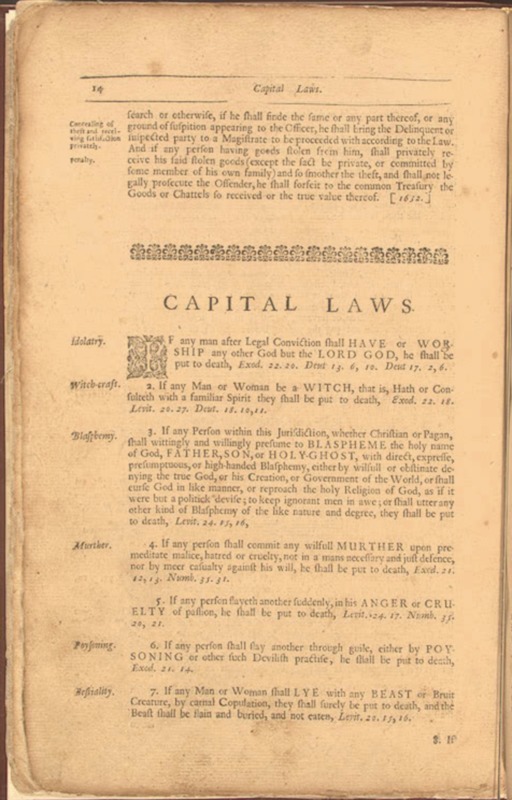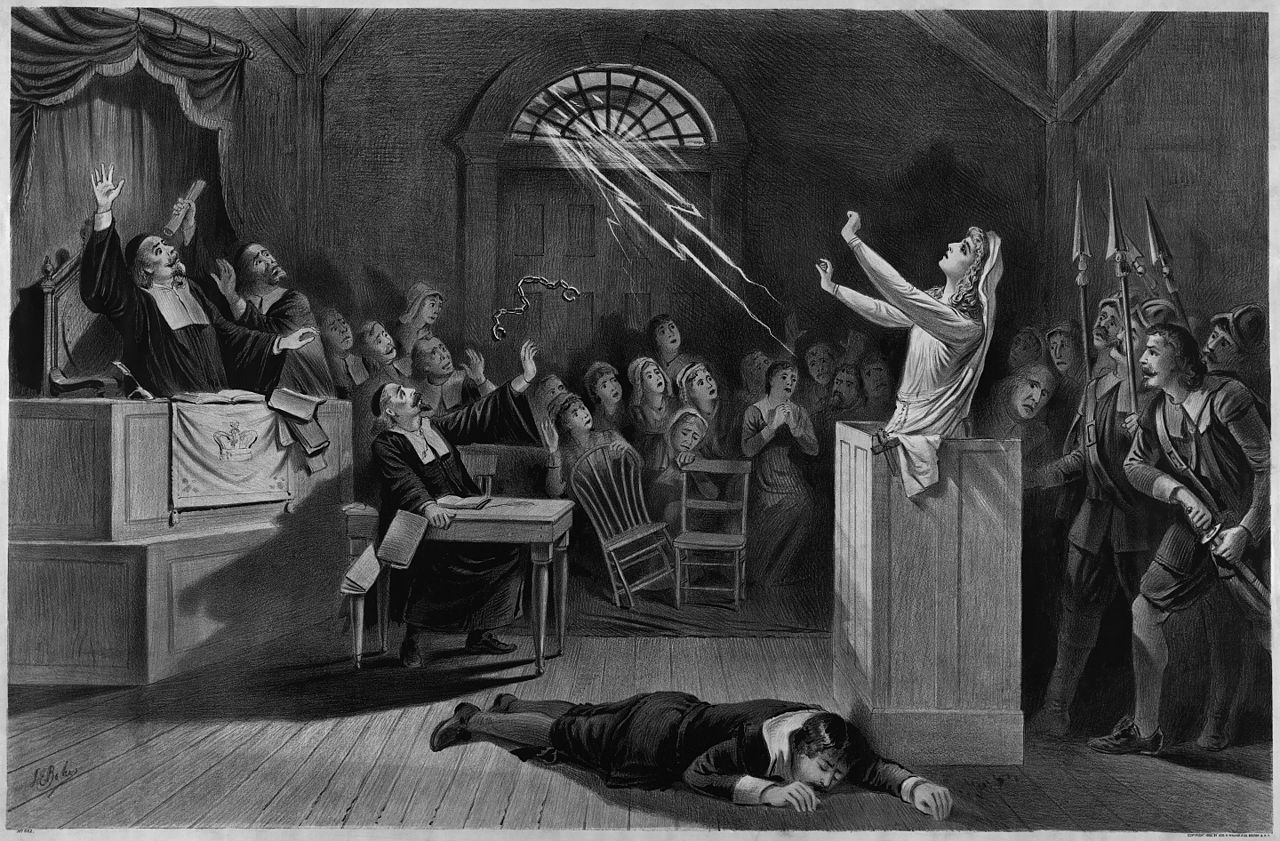Massachusetts Colony Capital Laws

Listed before theft, treason, or even murder, witchcraft was a detrimental crime in the seventeenth century Massachusetts colony (Ray). With the laws of the colony derived directly from the laws of the Bible, it was nearly impossible for the accused women of Salem to argue against accusations of witchcraft (Ray). As seen in the copy of the Massachusetts colony capital laws, each law is accompanied by Bible verses supporting their biblical validity. Had it not been for the prominence of witchcraft in Puritan theology, the Salem Witch Trials would never have occurred (Brandt). This influence of fear and superstition caused the Puritans to assign accusations of witchcraft in any misfortunate event, such as illness, crop failure,or inexplicable pains (Brandt). As a society built on religious superstitions, Salem, Massachusetts provided the perfect arrangement of circumstances that resulted in the worst witch hunt of American history (Brandt). Unlike the other Massachusetts laws, witchcraft could not be proven in court through any logical means. The evidence against the accused women often included the presence of moles or scars on their skin and accounts of unexplained pinching or pricking (Brandt). Many of the accused women were also outcasts in society, making it even more difficult for them to plead their innocence. For example, Bridget Bishop, who was the first to be executed in 1692 at the age sixty, “had a reputation for being loud and quarrelsome” (Brandt). The accusations of witchcraft seem to stemfrom an intolerance of non-conformity rather than witchcraft itself. As the trials progressed and hysteria engulfed the people of Salem, accusing people of witchcraft became a convenient means of settling family feuds and personal issues (Brandt). The whole ordeal spiraled out of control as witchcraft became the explanation for anything strange, resulting in nearly two-hundred arrests and twenty executions (Brandt).
Citations
Brandt, Anthony. “An Unholy Mess.” American History, vol. 49, no. 5, Dec. 2014, pp. 34–43. EBSCOhost, proxy-remote.galib.uga.edu/login?url=http://search.ebscohost.com/login.aspx?direct=true&db=fth&AN=98928484&site=eds-live.
Ray, Benjamin C. Satan and Salem : The Witch-Hunt Crisis of 1692. University of Virginia Press, 2015.
